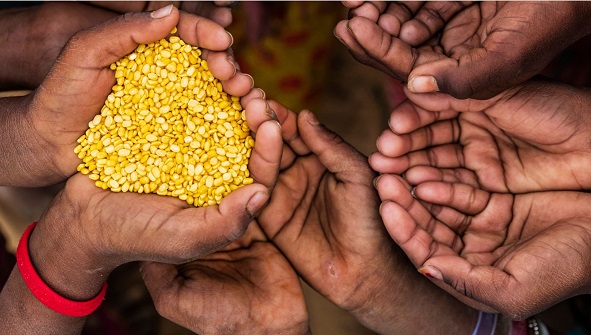Over 13 million Ghanaians in food crisis
Hunger gap widened in 2024: 13.3 million Ghanaians in food crisis

The number of Ghanaians facing a food crisis saw a sharp increase in 2024, with an additional 900,000 people struggling to access adequate food, according to data from the Ghana Statistical Service (GSS).
Data released to mark World Food Day shows the figure rose from 12.4 million in the first quarter of the year to 13.3 million by the fourth quarter, representing a 7.3 per cent increase in individuals suffering from the lack of food access, availability, and utilisation.
The GSS, in its press release, highlighted that despite ongoing national and local efforts to combat hunger, the data reveals persistent regional and gender disparities. The Volta Region recorded the highest incidence of food insecurity at 52 per cent in Q4 2024, while the Greater Accra Region, despite having the lowest rate, saw a significant jump from 20.2 per cent to 29 per cent over the same period.
The gender gap remains significant, with food insecurity being more prevalent in female-headed households. The proportion of such households that were food insecure increased from 40.4 per cent to 44.0 per cent between Q1 and Q4 2024.
For male-headed households, the figure increased from 32.4 per cent to 37.1 per cent, maintaining a persistent gender gap of about 7.0 percentage points.
The crisis is having a direct impact on child health. The proportion of households with underweight children under five years that were food insecure increased from 38.0 per cent to 44.9 per cent in 2024.
Furthermore, the link between hunger and poverty was highlighted, as persons who are both food insecure and multidimensionally poor increased by 400,000, from 3.7 million to 4.1 million.
“This reinforces the need for integrated policy responses that address multiple deprivations such as income, health, education, and living standards simultaneously,” the GSS stated.
As Ghana works towards achieving Sustainable Development Goal 2, the GSS urged that policy actions should prioritise coordinated, data-driven interventions that enhance food availability, improve access to nutritious diets, and promote sustainable production systems.



